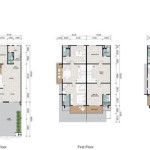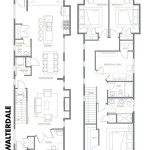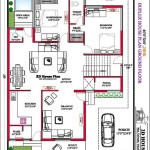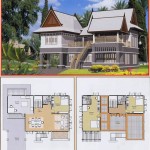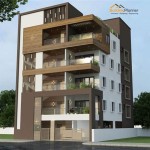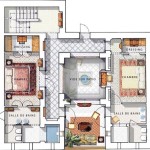```html
Atlanta Custom Home Plans: A Guide to Designing Your Dream Home
Building a custom home in Atlanta is a significant undertaking, demanding careful planning and execution. One of the most crucial steps is developing comprehensive and well-considered custom home plans. These plans serve as the blueprint for the entire project, dictating everything from the layout and dimensions to the materials and finishes. This article explores the key considerations involved in crafting Atlanta custom home plans, offering insights into the process and highlighting the importance of working with experienced professionals.
Understanding the Scope of Custom Home Plans
Custom home plans encompass a wide range of documents and specifications that collectively define the new residence. These plans are far more detailed than standard blueprints, reflecting the unique needs, preferences, and lifestyle of the homeowner. The process typically begins with a preliminary design phase, where the architect or designer collaborates with the client to develop initial concepts and spatial arrangements. This phase involves discussions about the desired size, style, number of rooms, and specific features.
Once the preliminary design is approved, the architect or designer proceeds to create detailed schematic designs. These drawings provide a more precise representation of the home's layout, including room dimensions, window and door placements, and overall aesthetic. Schematic designs also incorporate essential elements like plumbing and electrical systems, as well as heating, ventilation, and air conditioning (HVAC) infrastructure. These designs are often presented in both two-dimensional (2D) and three-dimensional (3D) formats to provide a comprehensive visual understanding of the proposed home.
Following the schematic design phase, the construction document phase begins. This stage involves the creation of highly detailed drawings and specifications that serve as the basis for construction. These documents include structural plans, which outline the foundation, framing, and other structural elements of the home. They also include mechanical, electrical, and plumbing (MEP) plans, which detail the installation of these systems. Finally, architectural details such as window and door schedules, finish specifications, and interior elevations are included in the construction documents. These detailed plans are essential for obtaining building permits and for contractors to accurately bid on and construct the project.
Key Considerations in Developing Atlanta Custom Home Plans
Several crucial factors must be considered when developing custom home plans in Atlanta. These factors range from site-specific considerations to homeowner preferences and budgetary constraints. Addressing these considerations early in the planning process can help ensure a smooth and successful building experience.
First, the site itself plays a crucial role in shaping the design of the home. The topography, soil conditions, and orientation of the lot can all influence the layout and structural design of the house. For example, a sloping lot may require a split-level design or extensive excavation. Similarly, the orientation of the lot can impact the placement of windows and doors to maximize natural light and minimize solar heat gain. Local zoning regulations and building codes also need to be carefully considered. These regulations dictate aspects such as setbacks, height restrictions, and allowable building area. A thorough site analysis is therefore a critical first step in the custom home planning process.
Second, the homeowner's lifestyle and preferences are paramount. The design of the home should reflect the way the homeowner intends to live and use the space. This includes considering the number of bedrooms and bathrooms, the size and layout of the kitchen, and the presence of any specialized spaces such as a home office, media room, or fitness center. The architectural style of the home should also align with the homeowner's taste and the surrounding neighborhood. Whether it's a traditional Craftsman, a modern minimalist design, or something in between, the aesthetic should be carefully considered. Furthermore, accessibility considerations should be addressed, particularly for homeowners who plan to age in place or have mobility limitations. This might include incorporating features such as wider doorways, ramps, and accessible bathrooms.
Third, the budget is a significant constraint that must be taken into account throughout the planning process. Custom home construction can be expensive, and it's important to establish a realistic budget early on and stick to it. The cost of materials, labor, and permits can vary significantly depending on the size, complexity, and location of the home. Value engineering techniques, such as choosing more affordable materials or simplifying the design, can be employed to keep costs under control. It's also important to factor in contingency funds to cover unexpected expenses or changes during construction. Regular communication with the architect or designer and the contractor is essential to ensure that the project remains within budget.
The Importance of Professional Expertise
Developing custom home plans is a complex and multifaceted process that requires the expertise of skilled professionals. Working with a qualified architect or designer is essential to ensure that the plans are well-conceived, technically sound, and compliant with all applicable regulations. A good architect or designer will not only have the technical skills to create accurate and detailed drawings but also the creative vision to translate the homeowner's dreams into reality.
Architects bring a unique blend of artistic and technical skills to the table. They are trained to understand the principles of design, construction, and sustainability. An architect can help the homeowner to develop a design that is both aesthetically pleasing and functional, while also taking into account factors such as energy efficiency and environmental impact. They can also guide the homeowner through the permitting process and represent their interests during construction.
Designers, while perhaps not possessing the same level of technical training as architects, often excel at space planning and interior design. They can help the homeowner to create a layout that maximizes the use of space and flows seamlessly. They can also assist with selecting finishes, fixtures, and furnishings that complement the overall design of the home. Interior designers can also help ensure that the home is ADA compliant if necessary.
In addition to an architect or designer, it's also important to work with a qualified structural engineer, particularly for homes with complex or unconventional designs. A structural engineer can ensure that the home is structurally sound and able to withstand the loads imposed by wind, snow, and earthquakes. They can also advise on the appropriate materials and construction techniques to use. Engaging a qualified builder or general contractor early in the planning process can also be beneficial. They can provide valuable input on the cost and feasibility of different design options.
Engaging with professionals experienced in navigating the specific challenges and opportunities presented by the Atlanta market is also key. Local building codes and permitting processes can be nuanced, and familiarity with these intricacies is crucial to avoid delays and complications. Professionals with a proven track record in the Atlanta area will have established relationships with local suppliers, subcontractors, and building officials, which can streamline the construction process.
The process of developing Atlanta custom home plans is a collaborative effort that requires open communication and a clear understanding of the homeowner's vision. Investing the time and resources necessary to create comprehensive and well-considered plans is essential to ensuring a successful and satisfying custom home building experience.
```
Unique House Luxury Home Plans In Atlanta Georgia Custom Design P Architectural Mediterranean

Custom Home Builders Houses For In Atlanta Ga Waterford Homes

Unique House Luxury Home Plans In Atlanta Georgia Custom Design Boy Farmhouse Mediterranean

Home Plans In Atlanta Ga House Charlotte Nc Houston Tx Custom De Designs Beautiful

Browse Our Floorplans In Ga

Custom Home Builders Houses For In Atlanta Ga Waterford Homes
.jpg?strip=all)
John Willis Custom Homes

Master Down 4000sf To 4999sf Home Plans Atlanta Ga House Charlotte Nc Houst Luxury Mediterranean Custom Designs

New Custom Plans For 2024 Home Design House Boye In Designs Mediterranean

10 Best Custom Luxury Home Builders In Atlanta Georgia With Pictures Davis And Hawbaker

